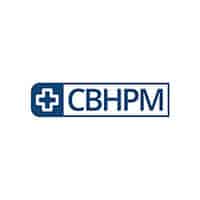On August 4th, the VII National Forum on the Brazilian Hierarchical Classification of Medical Procedures (CBHPM) was held at the headquarters of the Medical Association of Minas Gerais (AMMG), in Belo Horizonte (MG).
Medical professionals from various regions of Brazil and representatives of medical entities, in addition to members of important sectors of supplementary health, debated on the following topics: What are the current models of medical remuneration; The inclusion of CBHPM in the various compensation models; Ethical and legal issues of new models of medical remuneration; and “Sustainability, quality and financing of the supplementary health system and medical remuneration models”. The work was coordinated by the Minas Gerais State Medical Fee Commission.
The themes were widely discussed, and some conclusions were reached:
– We must thoroughly know and discuss the current remuneration models before discussing new models, which should be studied, also based on new models that worked in more developed countries. Although some hospitals have already adopted some new forms of remuneration such as the Diagnosis Related Groups (DRG), it is known that about 10% of the services have some resistance to its application;
– We must clearly define what the minimum and ethical remuneration value represents; in times of validity of Law 13.003/2014, several contracts between providers and operators still need to be regularized;
– Qualification, the result of valuing care and efficiency, should aim to improve care for the population. Compensation for performance should aim at improving care and not at monitoring and punishing physicians. Encouraging best practices reduces costs, which generates greater system sustainability;
– The CBHPM, despite needing some adjustments, should be the flag of the medical class, as we now have a reference, the result of the work of several medical entities;
– Although operators always complain about high health costs, especially with the aging of the population, their management processes must be improved, seeking other forms of sustainability that are not, once again, devaluing medical work.
Dr. Cibele Carvalho
Professional Defense Director




